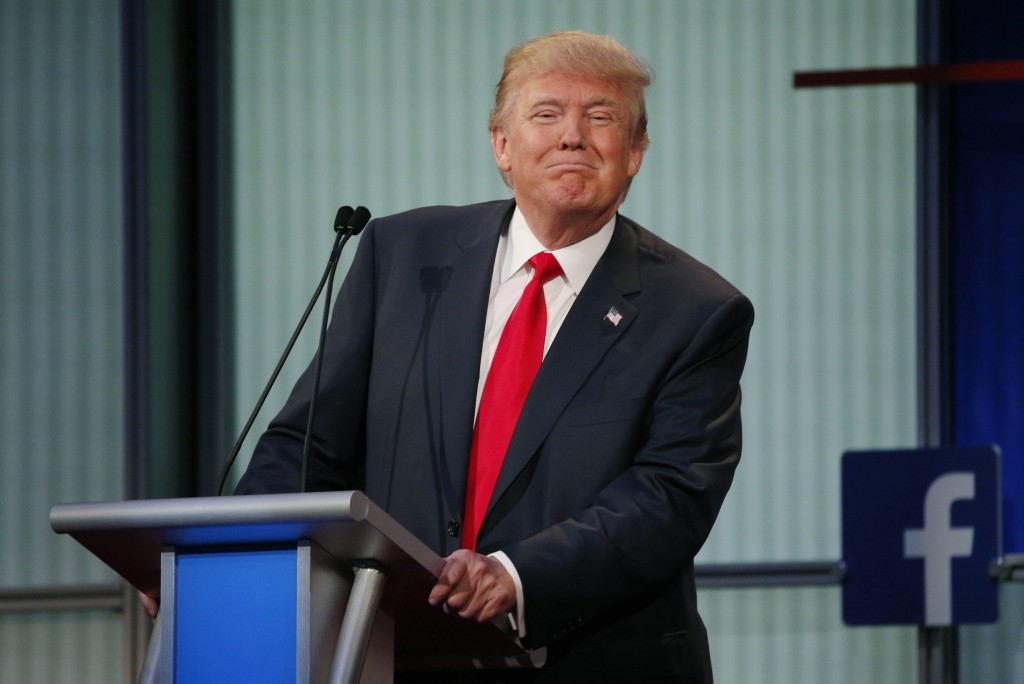After a number of controversial speeches delivered by Donald Trump, his latest and first major foreign policy address alarmed American allies, who view the Republican front runner’s repeated invocation of an “America first” agenda as a threat to retreat from the world.
Most governments however have tried to avoid commenting publicly on a speech by a U.S. presidential candidate. Germany foreign minister veered from that protocol to express concern at Trump’s wording.
“I can only hope that the election campaign in the USA does not lack the perception of reality,” Frank-Walter Steinmeier said.
“The world’s security architecture has changed and it is no longer based on two pillars alone. It cannot be conducted unilaterally,” he said of foreign policy in a post-Cold War world. “No American president can get round this change in the international security architecture…. ‘America first’ is actually no answer to that.”
Carl Bildt, a former Swedish prime minister and foreign minister who served as UN envoy to the Balkans in the aftermath of the Yugoslav wars of the 1990s, said he heard Trump’s speech as “abandoning both democratic allies and democratic values”.
“Trump had not a word against Russian aggression in Ukraine, but plenty against past U.S. support for democracy in Egypt,” Bildt said on Twitter, referring to lines from Trump’s speech that criticized the Barack Obama administration for withdrawing support for autocrat Hosni Mubarak during a 2011 uprising.
Trump’s speech, atypically read out from a teleprompter, seemed intended for showing a more serious side of a politician who has said he plans to act more “presidential” after months of speaking mainly spontaneously.
He promised “a disciplined, deliberate and consistent foreign policy” in contrast to the “reckless, rudderless and aimless” policies of Obama and former Secretary of State Hillary Clinton, Trump’s likely Democratic opponent if he secures the Republican nomination.
Where he was specific, like rejecting the terms of last year’s nuclear deal with Iran, calling for more investment in missile defense in Europe and accusing the Obama administration of tepid support for Israel, he was firmly within the Republican mainstream.
A major theme — that more NATO allies should spend at least 2 percent of their economic output on defence — is one that has also been taken up by the Obama administration itself, including repeatedly during the president’s visit to Europe last week.
Nevertheless, Trump’s rhetoric raised alarm in allied countries that still rely on the superpower for defense, particularly the phrase “America first”, used in the 1930s by isolationists that sought to keep the United States out of World War Two.
Former South Korean Vice Foreign Minister Kim Sung-han, who now teaches at the Korea University in Seoul, said Trump would be “the first isolationist to be U.S. presidential candidate, while in the post-war era all the U.S. presidents have been to varying degrees internationalists.”
“Saying the U.S. will no longer engage in anything that is a burden in terms of its relationships with allies, it would be almost like abandoning those alliances,” he said. “It will inevitably give rise to anti-American sentiment worldwide.”
Xenia Wickett, head of the U.S. and Americas Program at Britain’s Chatham House think tank, said the speech “suggests Trump would make America’s allies less secure rather than more.
“He talked about allies being confident but all of his rhetoric suggested that America should be unpredictable and that America’s allies needed to stand up for themselves.”
Earlier in the U.S. nomination process, foreign leaders were not reluctant to condemn Trump openly and publicly.
In December, when Trump called for his temporary ban on admitting Muslims, British Prime Minister David Cameron called him “divisive, stupid and wrong”. Hundreds of thousands of Britons signed a petition calling for Trump to be banned from Britain for hate speech, which was taken up in parliament. Cameron declined to ban Trump, but said: “If he came to visit our country, I think he would unite us against him.”
In January, German Vice Chancellor Sigmar Gabriel lumped Trump together with the leaders of European far-right parties as “not only a threat to peace and social cohesion, but also to economic development”.
